Funeral For A Friend - Interview
by Anastasia Grabov
published: 20 / 8 / 2005
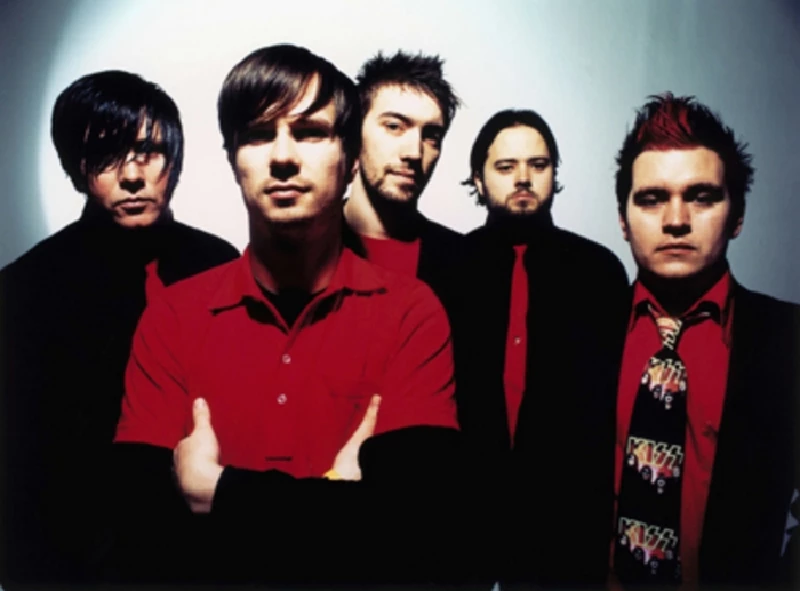
intro
Funeral for a Friend have had five Top 40 singles and two bestselling albums, but success has not come entirely smoothly. Guitarist Darren Smith talks to Ana Grabov about their new album 'Hours' and the reality of life on the road
In early 2002 Matt Davis (vocals), Kris Coombs-Roberts (guitar) , Darren Smith (guitar), Gareth Davies (bass), and Ryan Richards (Drums) formed in Cardiff Funeral for a Friend, the morbidly-titled band that was to be voted Kerrang’s Best UK Newcomers just a year later. Despite this accolade, as well as having five Top 40 singles and a bestselling debut album 'Casually Dressed and Deep in Conversation' and also playing several international tours and supporting Iron Maiden, not everything went smoothly. Matt developed a a painful lump in his throat, and was forced to take a break in hospital. But more on that later. In our second interview with them Pennyblackmusic caught up with Darren Smith at Southampton’s Guildhall to talk about their recently released second album 'Hours' and the reality of life on the road. PB : How did the band begin? DS : All of us kind of knew each other from various bands in our local scene in South Wales. Ryan and I were actually in a band together. Some of those bands split up and we all kind of merged together. PB : How did you choose the name of the band? DS: It was Matt’s idea really. It was just a name of a song he liked by a band called Planes Mistaken For Stars. It was an idea he had had for a while that if he ever got a band together he’d like to use that as a name, so he suggested that. I remember thinking "That sounds a bit morbid. It makes it sound like some Norwegian black metal band." But the more I heard it said and spoken about the more I thought of it as quite an original name and not one you’d mix up with other band names. I got to really like it after a while PB : What’s been the best times you’ve had together as a band? DS: Touring , because being the studio is so monotonous. It can be pretty boring. On tours we always seem to have a good time, whether in the States or over here. We’ve done some stuff in Japan, and mainland Europe. PB : What’s been your favourite venue so far in the world? DS: There’s been a few shows that have stuck in my mind, but that has not necessarily been down to the venue. Like playing Reading and Leeds for the first time. I remember headlining a homecoming festival back in Cardiff, called Campus Point. It was a really special show. The reaction we had from the crowd was amazing. At that point we hadn’t played in Wales for a while, so that was special. Tokyo had a very cool venue. They have a totally different way of doing things in Japan. The crew all had cameras and they take photos of all the settings on your amps and drum kits and stuff. Then when you get to the next show they’ve set it up perfectly, using these photos. It’s quite bizarre and weird, but really cool. PB : What about the worst times? DS: That would have to include the Iron Maiden tour. Iron Maiden fans don’t suffer other bands lightly, if you know what I mean. They like to let them know exactly who they’re there to see that night. Some of the crowd did show some signs of appreciation but in general you get all kinds of stuff shouted at you, all sorts of lovely comments. That was kind of tough. In the very first UK tour we did, we toured with another band for about a month. We did it in a transit van. That was really tough for me, especially at one show in Aberdeen. We didn’t have anywhere to stay that night. We had the choice between the back of the van, or this dressing room in the cellar of this club. We checked it out, and there was a radiator in there and stuff so we thought it’d be alright and got our sleeping bags down there. Little did we know the radiator wasn’t on. So we were in a cellar in Aberdeen in November. It felt like the coldest night there was. We were all huddled together. That is definitely a painful memory. It was character building though (Laughs). PB : I heard Matt was in hospital… DS : Yeah, it basically came down to exhaustion I think. It happened whilst we were recording the second half of the first album. But he was pushed so hard with his vocals that he started having trouble with his voice. We had also just come off a tour, and he’d started having to do the vocals. I think it was a combination of not recovering from the tour properly and doing ten hour days in the studio. It all built up and ended up with him getting an abscess in the back of his throat. A growth sort of thing filled with puss. That developed into glandular fever. It was also a case of doctors misprescribing medicines and things. He shouldn’t have had antibiotics but they gave him antibiotics. All these different things culminated in him having to be rushed into hospital to have this abscess seen to. So, he wasn’t in a good way. Luckily, to a certain extent, it happened when he got back home. But they say glandular fever sticks with you for a while. He has days when he still has little niggles with his throat. Ideally he needs to have his tonsils taken out. But he just doesn’t get a long enough break for him to have that done, recover from it and get his voice going again. One day we will have that done. PB : Some of you were just twenty when you started the band. Was there a lot of pressure for someone of that age to deal with? DS: Yeah, that can still bequite tough. Obviously you miss your family and friends. It’s not the easiest situation but to a certain extent when you sign up to do something like this you have to take the rough with the smooth. Initially you don’t realise quite what its going to be like. PB : What did you think it was going to be like? DS : Generally, I think most people have the idea that its quite a glamorous lifestyle; globetrotting, playing these shows all over the world, making records. Some people think you are making millions of pounds. It’s not like that at all. It’s very unglamorous. You’re living out of a suitcase, wearing dirty clothes, living on a dirty smelly bus with ten other guys. It’s not glamorous at all. You’re not making millions of pounds at all. We get a wage from our record company that we can get by on but we’re far from wealthy. You have to sell millions of albums to become rich in the music business. That’s quite a fallacy that people believe as soon as you put a record out you’re instantly rich. You’re not. You pay so much money back to the record company. The record company is more like a music loan company. It’s a lot harder than a lot of people perceive it as. PB : You got to love what you do! DS : Totally! If you’re not in it for the right reasons, you’re not going to last long at all. It can quickly put you off. PB : You say you have to pay the record company back. Does that mean you’re paying for it out of your own pockets? DS : Basically they give you budgets for various aspects of what you do, whether it be your recording costs, the touring budget, equipment budget etc, as well as the whole campaign, like marketing and so forth. To a certain degree you have to pay all that back to them through the records you sell. It’s only after you’ve paid that back that you get just a percentage of the money the CDs make. You still don’t get the whole profit. It’s percentaged so that you still only get about 64p from each record. That’s with our contract anyway. Our first album cost about £70,000 to record. This album cost more than that. It was recorded it the States. We used a bigger name producer. I know his fee was about £150,000, just to use him to make the record. Plus there was the marketing budget, which could be as much as £100,000. That's a hell of a lot of money being thrown about. But that’s what record companies are all about. They give you all that money, with the hope that you will make that money back. If you don’t they’re the ones that are stuck with the loss. They’re the ones putting their neck on the line. That’s how it works really. They advance you all this money hoping that you will sell enough records, and other aspects of making money through your music. Very few bands, unless you start going multi-platinum, actually make such a huge profit that they become rich from it. PB : Are you saving enough money for the future in the event that the band split up? DS: No. I mean we have a little stashed away for when the band starts to go downhill, as it inevitably will. We’re all realistic about how fickle the music industry is. Today’s hottest band could be forgotten tomorrow, when somebody else comes along. We’ve been advised to keep that small lump of money saved away. PB : Are there a lot of excesses on tour? DS : Definitely. All the band drink. When I’m on tour I will happily drink every night. Unless we’re in a hotel on a day off. I generally won’t drink then. I usually find myself, not necessarily getting drunk before the show, but I will always have two or three beers. Sometimes I will get drunk! We like to go sometimes to a club afterwards. As far as excesses go I do find myself drinking a lot more on tour than I would do if I was at home. When you’re playing a show you find yourself on a high with all this adrenaline going round. You’re in that joyous a mood. PB : Do you find yourself just having to take every day as it comes? DS: Yes, to a certain extent. It does get a bit Groundhog Dayish. It’s the same shit over and over. It’s not that I don’t enjoy it. We’re all good friends with each other and with our crew. We get to travel round different cities, and I feel really lucky to be in that kind of situation. To have a chance to visit some places that I otherwise would not have been to. PB : How do you feel about your new album, 'Hours'? DS: It’s great! I feel we’ve progressed a huge amount since 'Casually Dressed and Deep in Conversation.' It felt a little bit like a compilation. We had a few tracks that were on other EPs mixed with some newer songs. Whereas on this one, all the songs are brand new. We’ve all progressed with our song-writing. I think it has changed slightly. A lot of bands fall into the trap of writing the same sort of songs over and over again. They get into the situation where they put out one album that’s well received and then they think "Oh shit! We’ve got to do something that’s exactly the same."’ They get worried that if they try something different they will lose their fan base. We write tunes first and foremost for ourselves. If people like our stuff then that’s great. We’re the ones that have to stand up and play these songs. If we don’t feel its an honest representation of ourselves, then we’re doing it for all the wrong reasons. I would feel like we had cheated. PB : I hear you feel quite strongly about not being called an emo band? DS : It’s not so much a thing against emo. I think it’s just a form or scene of music we were placed into. Some elements of our music does fit with that scene. But different members of the band have so many different influences, that I feel that "rock band" would describe our music better. We understand that journalists need to describe a band and put labels on them to work out different genres and styles of music, so that readers know what to expect. We were just annoyed by the fact that we also seemed to be associated with only that style of music. PB : How would you want me to describe your style of music? DS : Just rock music. PB : That’s quite broad! DS: It is broad! And that’s what we are. I think the songs, especially on this album, are quite varied. There’s the whole spectrum of rock music on this album. There’s some electronica stuff, some acoustic songs, metal, straight-up classic rock songs, hardcore, a punk sort of edge. Some of the guys in the band are big Depeche Mode fans. So that's how that electronica element came into it . PB : Did you choose the sleeve design for your album yourselves? DS: We came up with the title of the album. Basically, we gave the designers the title and they came up with about fifteen ideas for the sleeve. We got to choose the ideas we liked. PB : What other ideas were there? DS: There was one with an old woman holding a fresh bunch of flowers. As the booklet went through the old lady became young but the flowers wilted. There was one with different fruits being eaten by mealworms. The album booklet is meant to be signifying the degradation of society; the way the girl is changing through the decades until the present day, where she is wearing a bulletproof vest. We thought it was quite a striking image, especially when you think about America and the shootings in the schools. I don’t think it’s something that should be shyed away from. It’s a bad thing that some people bury their head in their sand. PB : Why did you call the album 'Hours'? DS: It was in relevance to the way time changes everything. The booklet shows how society changes, but also the way people change, and personalities change as time goes by. How some people can be really aggressive when they are younger, but pacify a lot more with age. It happens to all of us, and it’s all around us. PB : Thanks a lot!
Band Links:-
http://funeralforafriend.com/https://www.facebook.com/funeralforafriend
https://twitter.com/ffaf
https://www.youtube.com/user/FuneralTube
https://plus.google.com/107881021928826489295
Picture Gallery:-
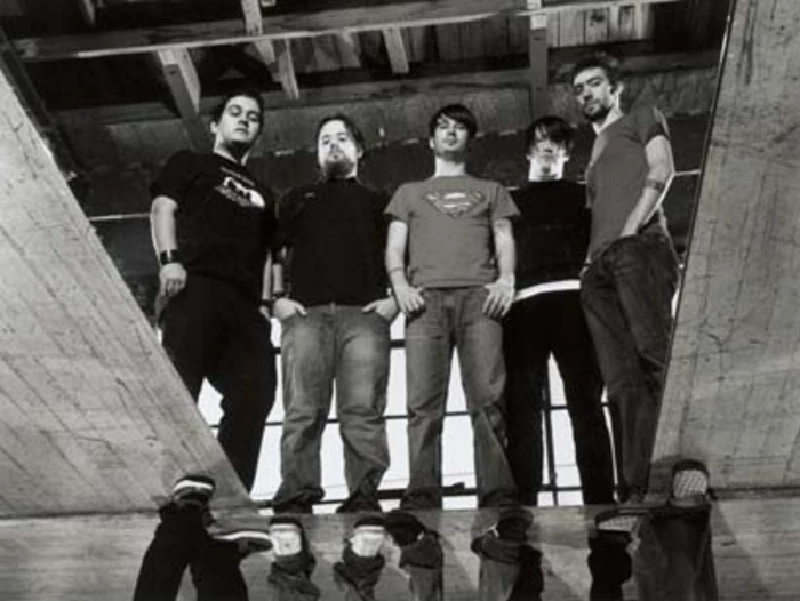
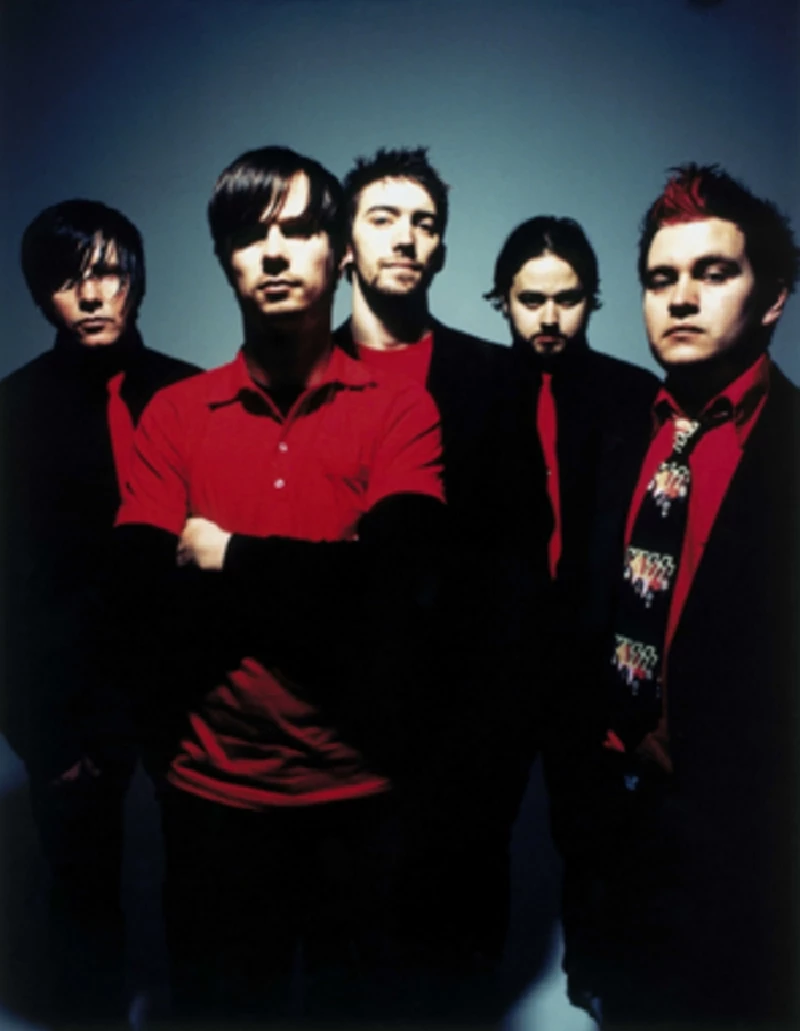
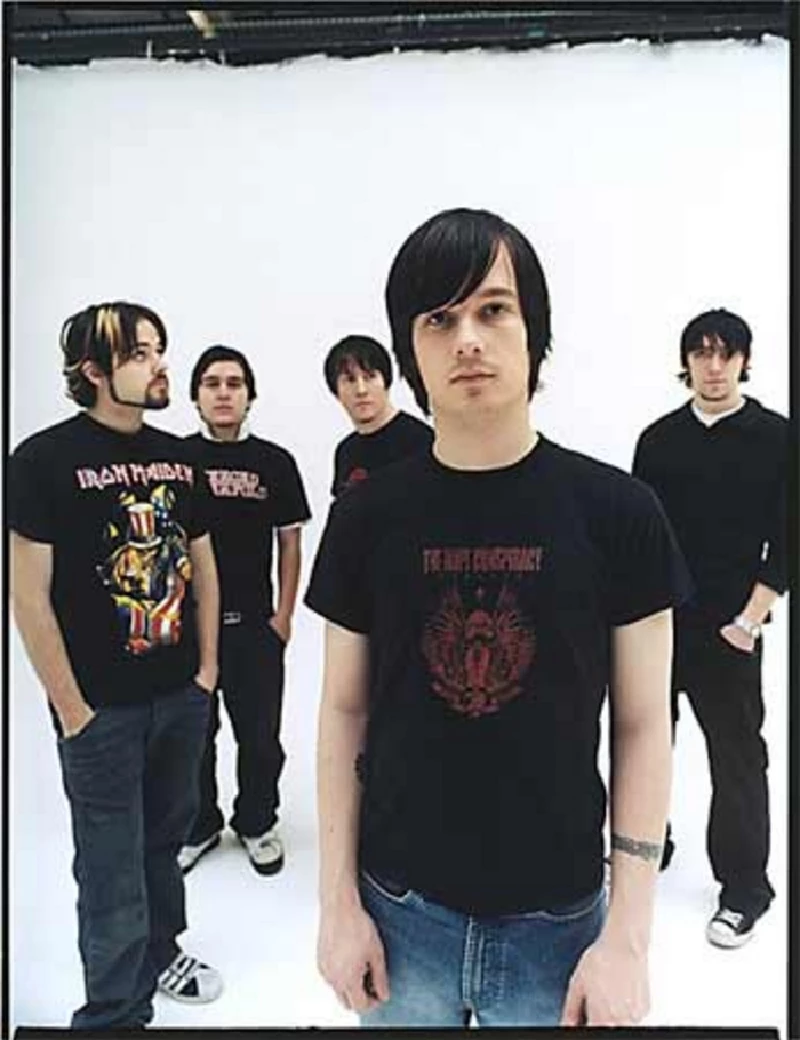
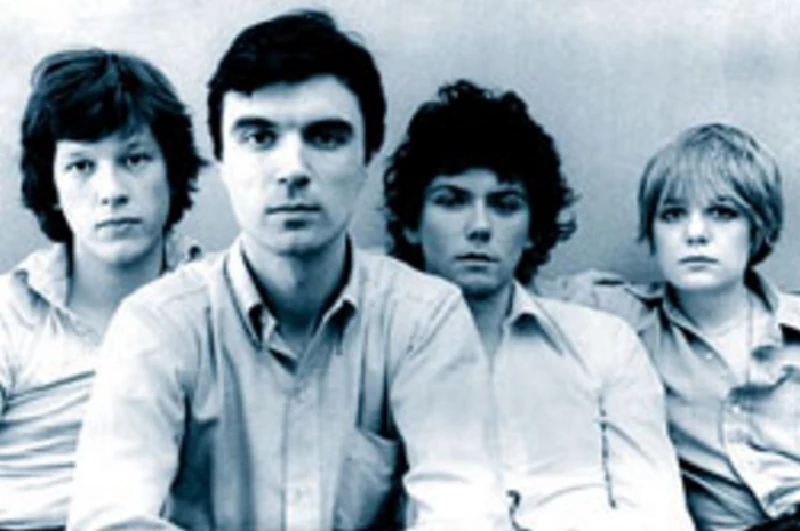
interviews |
|
Interview (2004) |

|
| Welsh rockers Funeral for a Friend's rise has been meteoric. Mark Rowland talks to them about touring with Iron Maiden and the pressures of coping with sudden fame |
live reviews |
|
Rescue Rooms, Nottingham, 8/2/2013 |
| Dave Goodwin finds Welsh hardcore band Funeral for a Friend to be on thunderous form at a gig in front of an enthusiastic crowd at the Rescue Rooms in Nottingham |
features |
|
Funeral for a Friend (2008) |
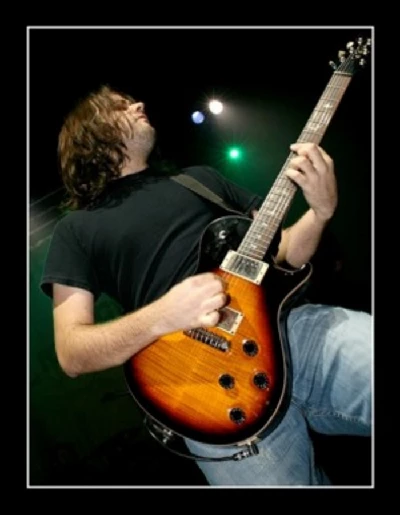
|
| Katie Anderson photographs bestselling Welsh post-hardcore act Funeral for a Friend at a gig at the Bournemouth Opera House on a British tour |
soundcloud
reviews |
|
See You All in Hell (2011) |
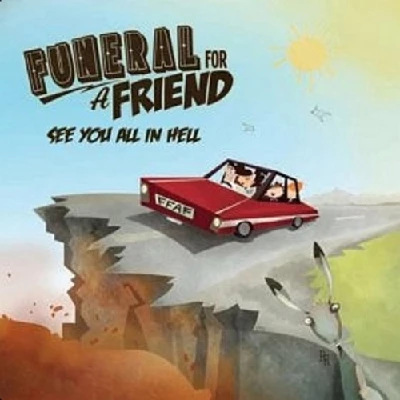
|
| Fantastic combination of new tracks, re-mixes and live performances, this is a welcome on nine track EP from Funeral For A Friend, which serves as an appendage to their recent @Welcome Home Armageddon' album |
| Welcome Home Armageddon (2011) |
| Escape Artists Never Die (2004) |
most viewed articles
current edition
Carl Ewens - David Bowie 1964 to 1982 On Track: Every Album, Every SongSimian Life - Interview
the black watch - Interview
John McKay - Interview
Editorial - July 2025
Billie Eilish - O2 Arena, London, 10/7/2025
Armory Show - Interview with Richard Jobson
Hothouse Flowers - Photoscapes
Bathers - Photoscapes 2
Cleo Laine - 1927-2025
previous editions
Trudie Myerscough-Harris - InterviewBoomtown Rats - Ten Songs That Made Me Love....
Blues and Gospel Train - Manchester, 7th May 1964
Pixies - Ten Songs That Made Me Love...
Fall - Hex Enduction Hour
Heavenly - P.U.N.K. Girl EP
Sam Brown - Interview Part 2
Place to Bury Strangers - Interview
Miscellaneous - Charity Appeal
Doris Brendel - Interview
most viewed reviews
current edition
Sick Man of Europe - The Sick Man of EuropeAmy Macdonald - Is This What You've Been Waiting For?
Phew, Erika Kobayashi,, Dieter Moebius - Radium Girls
Alice Cooper - The Revenge of Alice Cooper
Blueboy - 2
Lucy Spraggan - Other Sides of the Moon
Bush - I Beat Loneliness
Davey Woodward - Mumbo in the Jumbo
Philip Jeays - Victoria
Lapsley - I'm a Hurricane, I'm a Woman In Love
Pennyblackmusic Regular Contributors
Adrian Janes
Amanda J. Window
Andrew Twambley
Anthony Dhanendran
Benjamin Howarth
Cila Warncke
Daniel Cressey
Darren Aston
Dastardly
Dave Goodwin
Denzil Watson
Dominic B. Simpson
Eoghan Lyng
Fiona Hutchings
Harry Sherriff
Helen Tipping
Jamie Rowland
John Clarkson
Julie Cruickshank
Kimberly Bright
Lisa Torem
Maarten Schiethart